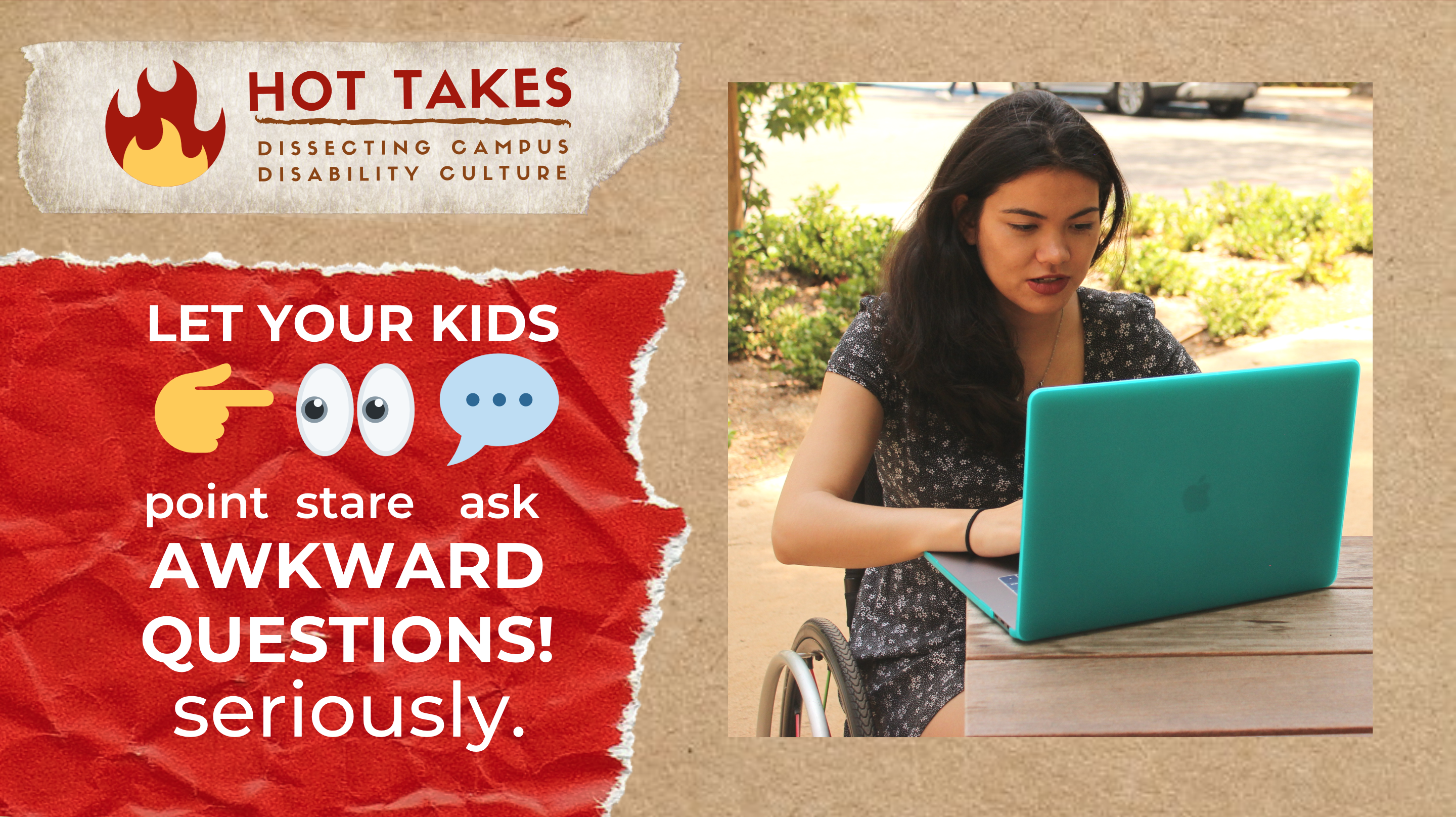
By: Carolanne Link
As a wheelchair user, I’m used to people staring, taking double-takes and getting awkward as they process what they’re seeing. I confess, my fashion choices probably don’t help in their moment of comprehension, but I can guarantee it’s mostly the chair. I’m never bothered by these moments because I know they’re not ever meant negatively. What does bother me though, is when children have the same moment of comprehension, usually without the subtlety induced by political correctness, their parents react by pulling them away, shushing them, and telling them not to point or stare. That’s right. You read that correctly.
I’m not bothered by the children, but by how their parents react in that moment. The only way we’re going to destigmatize disability in all of its different presentations to the world, is by letting children ask questions and gain an understanding of these differences and that people are people. By yanking them away, shushing them and scolding them, even lightly in these moments, they learn to associate that experience and that disability with something they should avoid and not engage with.
I love it when they ask questions. I actively smile at kids that I see staring at me to reassure them that it’s okay if they want to engage with me or even just look. It warms my heart when a child feels okay with approaching me and asking a question like “What is that? [the wheelchair]” or “Why can’t you walk?” or “What happened?” In every instance, I feel completely comfortable with answering their curiosities with honesty and patience: “This is a wheelchair. It helps me get around.”, “I can walk, just not far. Therefore, the chair helps me out when it’s too far for me.”, and “I was born with a disability that affects my legs and ability to walk.”
If there’s a little one in your life who has a moment like this, please take the time to answer whatever their curiosity may be. You may think it’s rude to let them stare or point or approach me, but I assure you that it’s quite the opposite. Stifling their impression of and interaction with disabled people does the disabled community a lot more damage. We are completely used to these reactions in every second of our daily lives; let them be learning moments of warmth and connection instead of ostracization. I hope that in some way these small instances of meeting me, and people like me, encourage the next generation to become open and inclusive people.
Originally Posted: 6 August 2019

